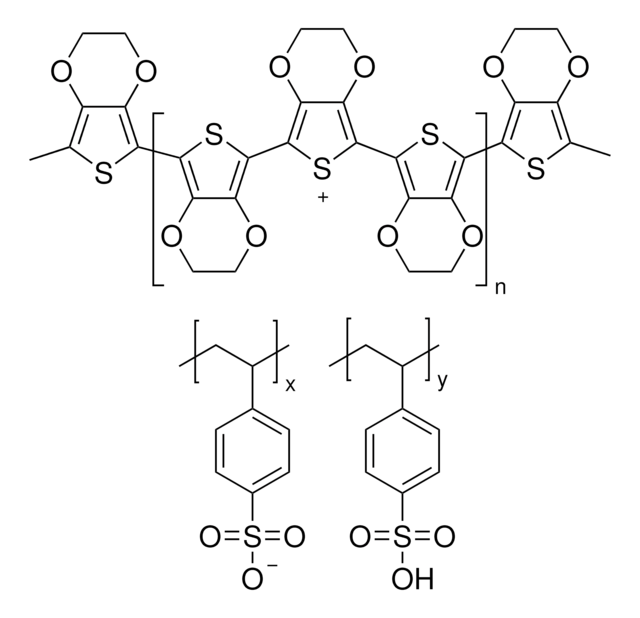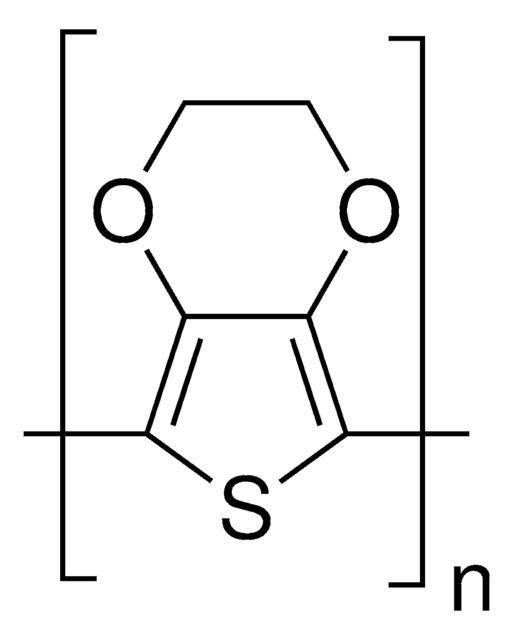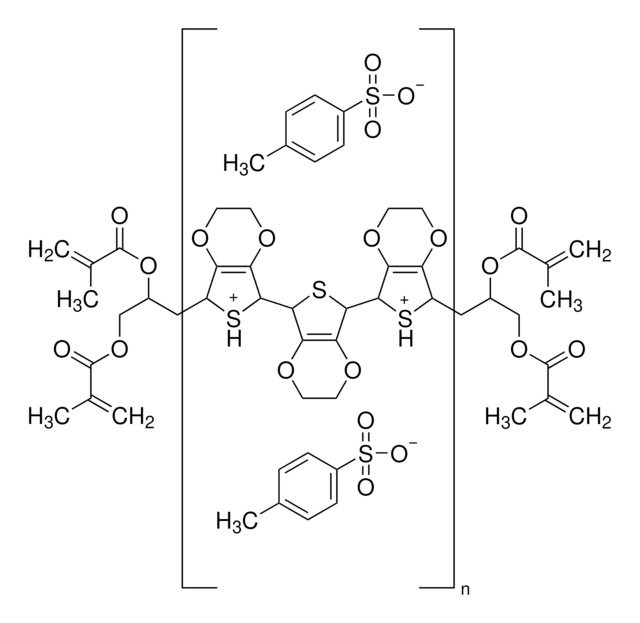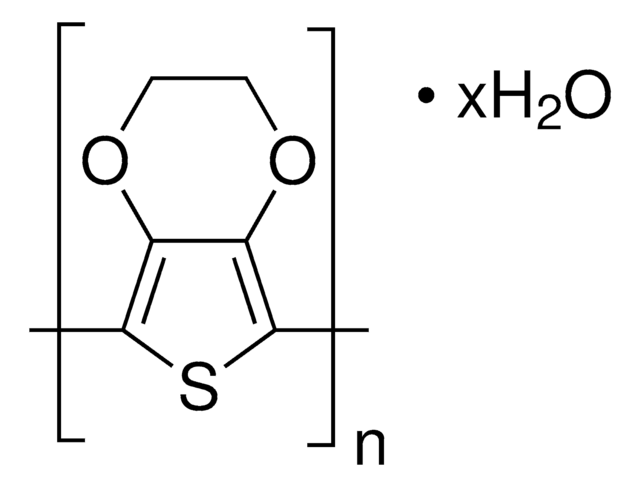900208
Poly(3,4-ethylendioxythiophen)-poly(styrolsulfonat)
dry re-dispersible pellets, high conductivity
Synonym(e):
PEDOT:PSS, Poly-(2,3-dihydrothieno-1,4-dioxin)-poly-(styrolsulfonat)
About This Item
Empfohlene Produkte
Qualitätsniveau
Form
pellets
Grünere Alternativprodukt-Eigenschaften
Design for Energy Efficiency
Learn more about the Principles of Green Chemistry.
sustainability
Greener Alternative Product
Schichtwiderstand
<200 Ω/sq (by addition of 5% diethylene glycol)
Grünere Alternativprodukt-Kategorie
Lagertemp.
2-8°C
Suchen Sie nach ähnlichen Produkten? Aufrufen Leitfaden zum Produktvergleich
Allgemeine Beschreibung
- low band gap
- good optical properties
- high conductivity
- low redox potential
- easy processing
- tunable film forming ability
Anwendung
Rechtliche Hinweise
Signalwort
Danger
H-Sätze
Gefahreneinstufungen
Eye Dam. 1 - Skin Corr. 1B
Lagerklassenschlüssel
8A - Combustible corrosive hazardous materials
WGK
WGK 3
Flammpunkt (°F)
Not applicable
Flammpunkt (°C)
Not applicable
Hier finden Sie alle aktuellen Versionen:
Besitzen Sie dieses Produkt bereits?
In der Dokumentenbibliothek finden Sie die Dokumentation zu den Produkten, die Sie kürzlich erworben haben.
Kunden haben sich ebenfalls angesehen
Artikel
Progress in Organic Thermoelectric Materials & Devices including high ZT values of >0.2 at room temperature by p-type (PEDOT:PSS) & n-type (Poly[Kx(Ni-ett)]) materials are discussed.
Recent progress in the area of solution-processed functional materials has led to the development of a variety of thin-film optoelectronic devices with significant promise in the industrial and consumer electronics fields.
Unser Team von Wissenschaftlern verfügt über Erfahrung in allen Forschungsbereichen einschließlich Life Science, Materialwissenschaften, chemischer Synthese, Chromatographie, Analytik und vielen mehr..
Setzen Sie sich mit dem technischen Dienst in Verbindung.

![2,5-Dihydro-3,6-di-2-thienyl-pyrrolo[3,4-c]pyrrole-1,4-dione 97%](/deepweb/assets/sigmaaldrich/product/structures/209/681/63a4048f-a2a7-496b-814d-ccb4b5b76124/640/63a4048f-a2a7-496b-814d-ccb4b5b76124.png)




